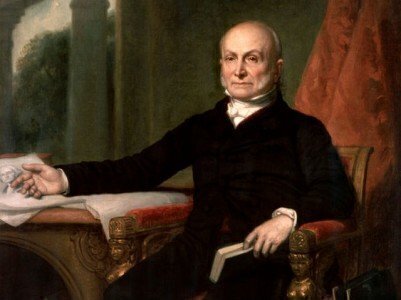The debate over the potential inclusion of several Trump family members in the next administration isn’t a new one. In fact, John Adams and other early Presidents faced criticism for employing relatives in key positions.

So far, the speculation is that President-elect Donald Trump may want Jared Kushner, his son-in-law, in an advisory position in his new administration. Critics point to a 1967 law, the Federal Anti-Nepotism Statute, as preventing this. The statute, known as Section 3110, was passed as part of a Postal Service reform law, and it states that an executive agency official can’t appoint relatives, including sons, daughters and sons-in law, to “a civilian position in the agency in which he is serving or over which he exercises jurisdiction or control.”
However, others have said that if Kushner, or another Trump family member, is in an unofficial role and doesn’t receive compensation, there isn’t a conflict with the statute. A similar debate, ironically, also took place in the 1990s when President Bill Clinton asked Hillary Clinton to lead a health-care task force that held closed-door meetings. In a 1993 lawsuit, a federal judge ruled that some of the Clinton task-force meetings needed to be held in public, but he also rejected the argument that the First Lady was a “government employee.”
In the years after that, several academics have argued that the Federal Anti-Nepotism Statute doesn’t really apply to the President, since the President has powers directly vested by the Constitution’s Appointments Clause. Article II, Section 2, provides that some officials need to be approved by the Senate, while other “inferior” officers may be appointed directly by the President.
In 2012, Gerard Magliocca from the Indiana University School of Law argued that Section 3110 clearly didn’t apply to the President. “First, as far as I can tell, this is the only statutory limit on the President’s authority to choose his political appointees. Separation-of-powers would suggest that Congress cannot intrude so bluntly into his discretion to choose close advisors,” Magliocca wrote on the blog Concurring Opinions.
Another law professor, Steve Vladeck from the University of Texas, told CNN last week that while the statute could be challenged, the risk is that a court could rule that any action taken by the relative in an official role could be questioned.
"While it's true that the penalty for violation of the statute is just to withhold salary or other financial remuneration from the wrongfully appointed employee, there's also the possibility that any action taken by such a wrongfully appointed employee could be subject to legal challenge and potentially even be voidable," Vladeck said.
Before 1967, there was a rather long history of presidential relatives serving in appointed and unofficial government positions. The most famous example was President John F. Kennedy’s nomination of his brother, Robert, to become Attorney General. Robert Kennedy was confirmed in a voice vote by the Senate in 1961 and he served until September 1964.
Robert Kennedy’s nomination was controversial at the time, since he lacked vast legal experience, but it wasn’t the first high-profile debate over the nepotism issue. Back in 1797, incoming President John Adams retained his son, John Quincy Adams, as a diplomat and appointed him as the United States minister to Prussia, over public criticism.
More vexing was William Stephens Smith, the President’s son-in-law, whom Adams nominated for several government positions. Smith had been involved in land speculation schemes, but President Adams was eventually able to appoint Smith as a customs agent in New York. In 1806, Smith was implicated in a scandal to invade Venezuela with 200 men. Adams also appointed his brother-in-law as a postmaster and named his son John Quincy’s father-in-law as superintendent of stamps.
Other Presidents retained relatives at the White House in secretarial roles, including James Madison, James Monroe, Andrew Jackson, John Tyler and James Buchanan. Zachary Taylor kept his brother and son-in-law on the government payroll, using military commissions, as unofficial presidential advisers. President Ulysses S. Grant had many direct family members on the government payroll or at the White House. His brother, Orvil, was implicated in scandals involving Indian trading posts.
In later years, Woodrow Wilson, Franklin Roosevelt and Dwight Eisenhower had family members as secretaries or aides. Kennedy also appointed his brother-in-law, Sargent Shriver, as the first head of the Peace Corps.
Scott Bomboy is the editor in chief of the National Constitution Center.







